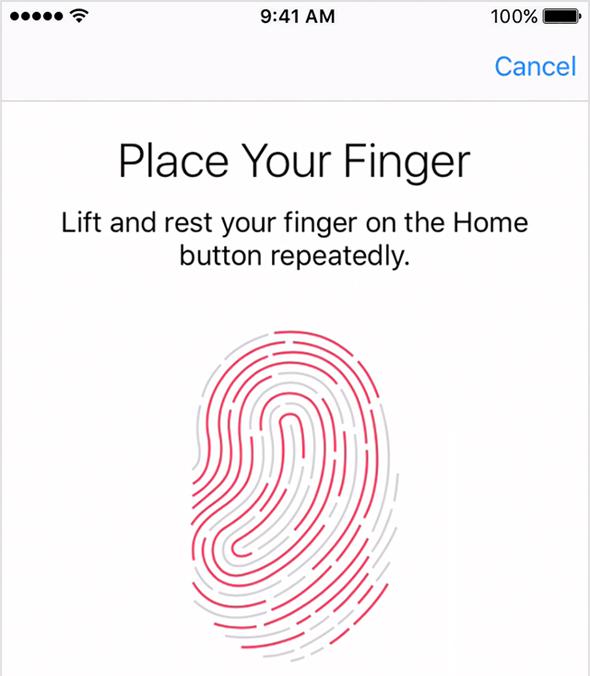The recent standoff between Apple and the FBI over accessing a passcode-locked iPhone ended abruptly when the FBI was able to buy a cracking tool. But even if Syed Farook, the San Bernardino shooter who owned the iPhone, hadn’t been killed, a similar conflict might have still played out. Current precedent indicates that being forced to enter a passcode runs counter to the Fifth Amendment’s protection against self-incrimination. But if Farook were alive and had locked his iPhone with Apple’s Touch ID, the FBI would have been looking to a very different and rapidly evolving precedent.
The Los Angeles Times reports that in February the FBI obtained a warrant from federal magistrate judge Alicia Rosenberg to compel a 29-year-old Los Angeles woman to unlock her iPhone with her fingerprint. The suspect, Paytsar Bkhchadzhyan, has a criminal record and was allegedly the girlfriend of Sevak Mesrobian, who is thought to be a member of the Armenian Power gang. Though the Times followed a trail of court records, some are sealed, so it’s not totally clear why the FBI wanted to access the contents of Bkhchadzhyan’s phone.
Judges at the state level have held that law enforcement can compel a suspect to provide his or her fingerprint for unlocking a computer. The distinction they draw between this method of unlocking and a password or numeric passcode centers around the precedent that thoughts and ideas are protected by the Fifth Amendment while “material evidence”—like blood, handwriting samples, or the key to a strongbox—is not. This contrast was notably discussed in a 1988 John Paul Stevens Supreme Court dissent.
Privacy advocates are still determining whether they believe that the emerging distinction between fingerprints and memorized passcodes is reasonable. Susan Brenner, a law professor at the University of Dayton, told the Times that, “It isn’t about fingerprints and the biometric readers. [It’s about] the contents of that phone, much of which will be about her, and a lot of that could be incriminating.”
In 2014, Hayes Hunt, a criminal defense and government investigations lawyer at Cozen O’Connor, told Time, “I think the courts are struggling with this, because a fingerprint in and of itself is not testimony, … [but] the concern is, once we put a password on something or on ourselves, we have a certain privacy interest.”
Since humans leave their fingerprints on surfaces in their daily lives, law enforcement might be able to lift prints and unlock devices even without suspects’ fingers. From a legal perspective, for now it’s probably safest to lock your phone with a passcode instead of your fingerprint.
